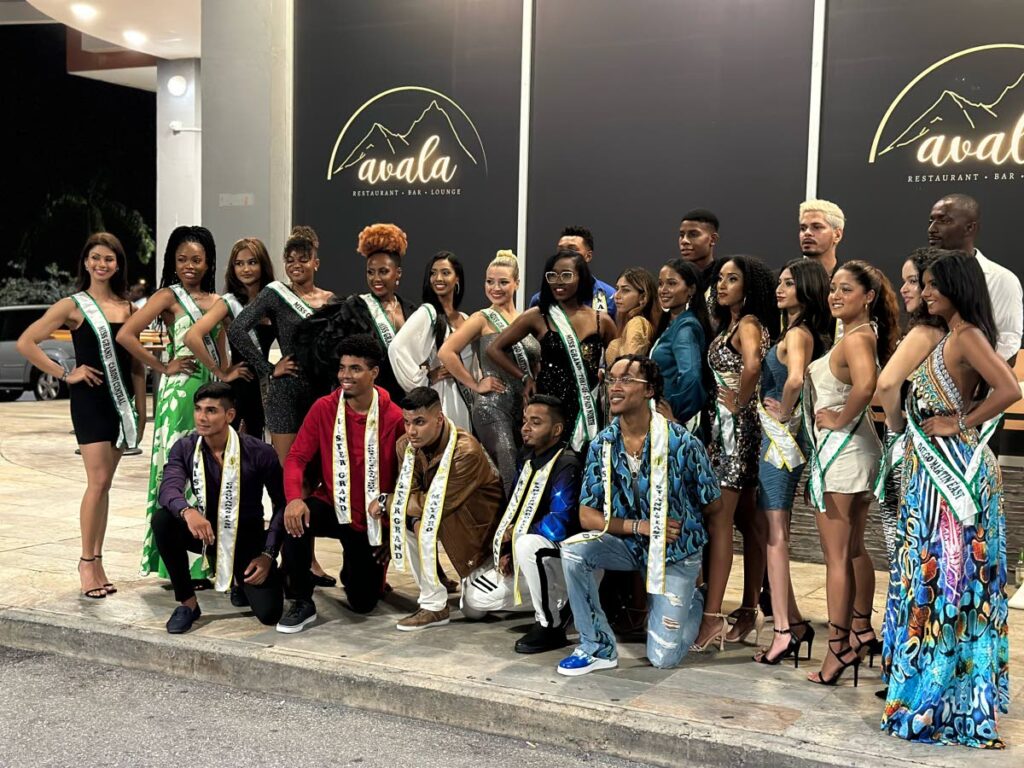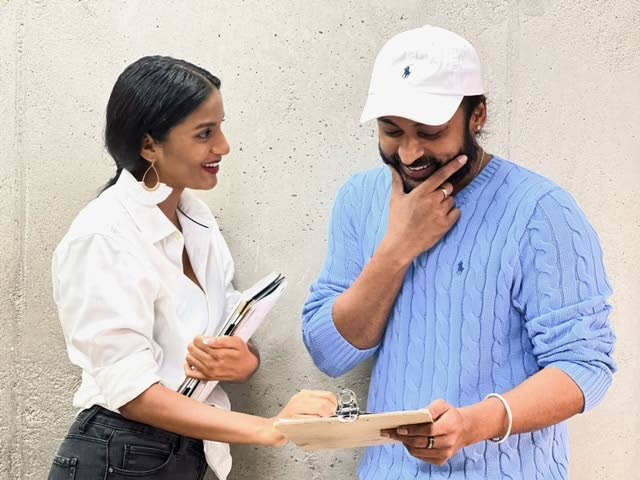Kehra Ramsubhag's 'Grand' idea: Pageants create leaders

Beauty pageants aren’t just skin deep. They require poise, intelligence, personality and an ability to communicate.
TT has its own history with beauty pageants. Legends such as Wendy Fitzwilliam and Janelle "Penny" Commissiong topped the world at the Miss Universe and Miss World pageants and have gone on to be business leaders in the creative and other industries. Fitzwilliam, for example, is not only a model and TV host, but also a lawyer. Commissiong is the chairman of Tourism Trinidad Destination Management Co.
Kehra Ramsubhag, director of Stolen Productions Ltd, has had a love for pageants because of the opportunities they bring for creative people and producers. Business Day spoke to her while she organised the Mr and Mrs Grand pageants, scheduled for September 10.
Ramsubhag said 30 people – 15 men and 15 women – were picked from about 200 hopefuls last month.
They will then vie for the Mr and Mrs Grand TT crowns. The winners will then go to Ho Chi Minh City in Vietnam in October for the global event.
Ramsubhag said the skills and perspectives that participants learn make for a strong but understanding business professional and teaches a different style leadership – one that shows compassion instead of commanding respect.
Walking the walk
"I just see them being more effective leaders," she told Business Day. "They are able to relate to their employees, co-workers and their teammates."
She said instead of being intimidating and aggressive, the skills learned in training for beauty pageants could also help them develop leadership qualities such as empathy and emotional intelligence.
"We really want to teach these young men and women how to do things differently. And that in itself creates a different work environment and society for them to live in."
Along with learning to walk the runway and learning poise, pageant participants are also taught public speaking, given voice training, and have to learn the history and culture of their nation, as well as current affairs. This is true especially in the case of international pageants, as the delegates do not just represent themselves in these pageants, but their entire countries.
"They are considered as ambassadors," she said. "So we want to send someone that is qualified. They also have to do a lot of public relations, branding and image management.

(Photo courtesy Kehra Ramsubhag) -
"We also talk about topics like toxic masculinity and soft empowerment. We try to have really in-depth education as to how we go about changing issues in society."
Pageantry – a billion-dollar industry
The beauty pageant industry earns up to US$5 billion a year and attracts businesses around the world. Industries such as make-up artistry, catering and hairstyling also benefit these events. Ramsubhag said putting on a pageant for local contestants could cost thousands, and, to host international guests, millions of dollars.
She said a lot of money is spent by organisers, investors and supporters of the delegates on things such as venues, decoration, catering, music performers and all other elements of a major event. Support for the delegates also costs money, goes into educators, food, costumes, make-up artists, hair, photography and social media management.
After the Mr and Mrs Grand pageant in TT, the winning delegates must go to Vietnam for a month where there will be daily events at which they have to appear. "Plane tickets alone have a phenomenal cost. Each ticket for the winners costs about $15,000 or more, plus we would have to send chaperones, we need to shop their costumes and gowns to Vietnam beforehand as well,”
Hosting an event for international guests means organisers also have to accommodate the delegates, which would include hotel accommodation and food for all of them, as well as prizes for the winners.

(Photo courtesy Kehra Ramsubhag) -
The Miss Universe Pageant, for example, has an annual budget of about US$100 million, and the winner receives an annual salary and prize money of about US$250,000.
Ramsubhag said her business focuses on artists, to give them the opportunity to develop through the pageantry industry. She said she managed the reign of one local pageant candidate all the way to an international competition in 2021. After that candidate's journey, they took over and organised a pageant in 2022 and brought in delegates.
“There is so much talent in TT, but there seems to be a huge gap between being creative and monetising that creativity,” she said. “Some creatives also tend to be taken advantage of, because the creative industry in TT is unregulated. I started working with a lot of creatives, trying to monetise their craft, and when we discovered pageantry I realised it was a great way for them to gain international exposure.”
The delegates as well also have great opportunities for exposure even if they do not win the crown. Some businesses are attracted to pageants and the delegates because of their potential as brand ambassadors internationally and locally.
“There are so many people out here with companies that are interested in sponsoring these kinds of events,” she said. “This is a very appealing industry to many businesses.
“The trick behind it is to create a brand that's recognisable and that has a certain standard, so that when they associate themselves with the brand, they feel comfortable that they're being represented in a high-quality way.”

Comments
"Kehra Ramsubhag’s ‘Grand’ idea: Pageants create leaders"